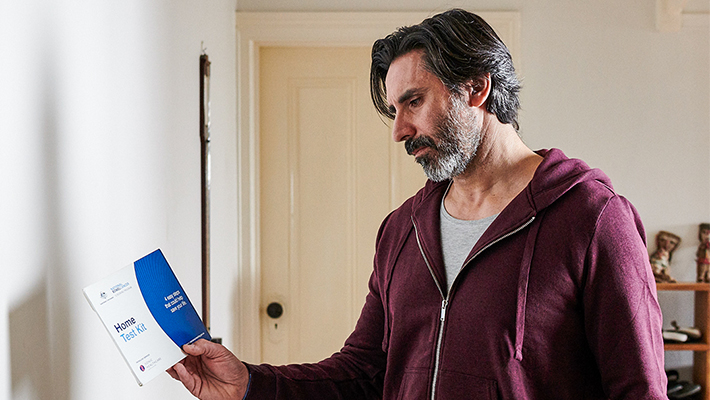Dr Eleonora Feletto, Senior Research Fellow at the Daffodil Centre, has been awarded a $1.7 million grant from the National Health and Medical Research Council (NHMRC) to lead a national pilot evaluating ways to increase bowel cancer screening participation through mobilising general practice.
Bowel cancer screening in Australia
Australia’s National Bowel Cancer Screening Program (NBCSP) is available to all Australians at average risk of bowel cancer aged between 50-74 years. Every two years, a free faecal immunochemical test is mailed directly to the home of eligible Australians. The program is an effective way of detecting precancerous bowel changes and bowel cancer in its early stages before symptoms are recognised. In the most recent reporting period (2019-2020), 43.8% of eligible Australians participated in the program. It has been shown that if participation could reach and be sustained at 60%, the NBCSP would save 84,000 lives by 2040.
Existing interventions to increase screening
Ongoing work has demonstrated that a range of interventions work to increase NBCSP participation, for example mass media campaigns. As part of this new project, Dr Feletto and her team will explore a range of complementary strategies to increase participation in the NBCSP such as the role of general practice.
A recent review of strategies to increase screening participation found that endorsement from general practitioners (GPs) and general practice staff was one of the most effective ways to encourage people to screen. However, interviews with GPs and practice staff reveal that many feel distant to the program, and/or face barriers to promoting screening such as lack of time and resources. More work needs to be done in understanding ways to best support GPs’ involvement in the Australian program.
Using implementation science to design strategies that work
Dr Feletto is leading a multidisciplinary team who aim to better understand how Australians are screening for bowel cancer, to design a new method for GPs to advocate for the NBCSP and understand how existing interventions work best together. The new method will be designed in collaboration with GPs and general practice staff and then trialled in up to 80 general practices as part of a cluster-randomised Hybrid Type 1 effectiveness-implementation trial. The trial design will be guided by implementation science frameworks and will be evaluated using process evaluation. This will be one of the few studies in Australia to take an implementation science approach to increasing participation in bowel cancer screening.
The project will take new and existing information on ways in which we can improve screening for bowel cancer and assess how they could be combined most effectively to improve outcomes for all Australians.




